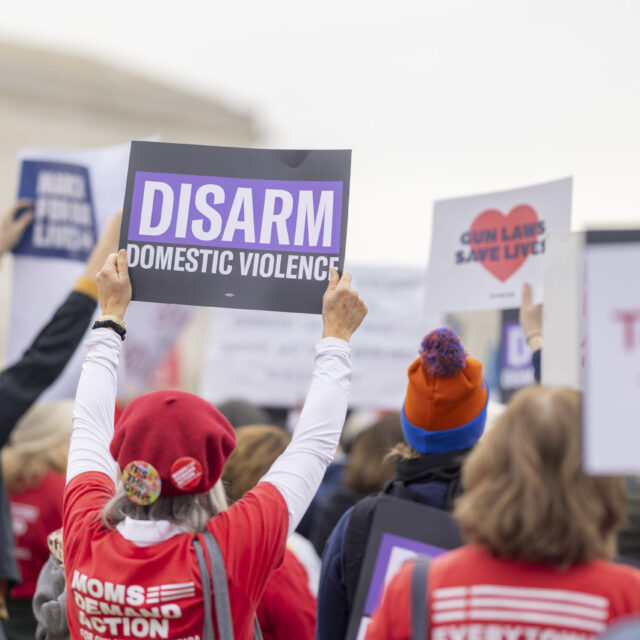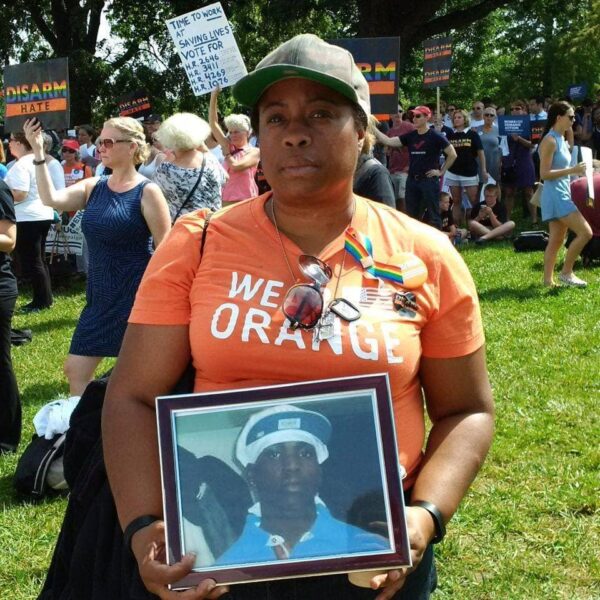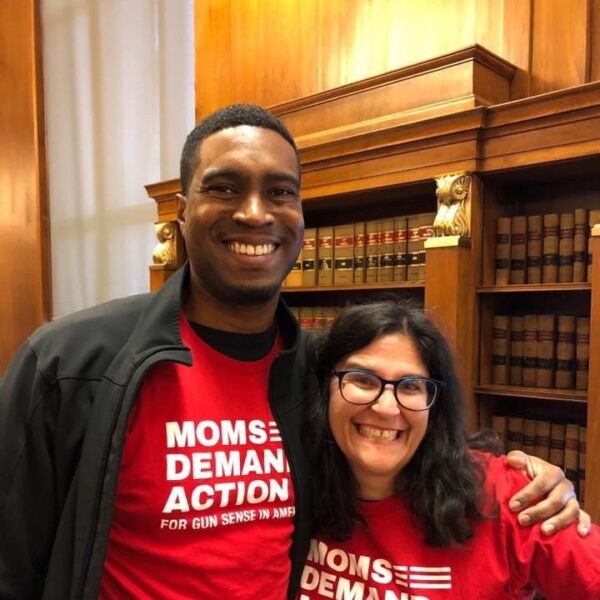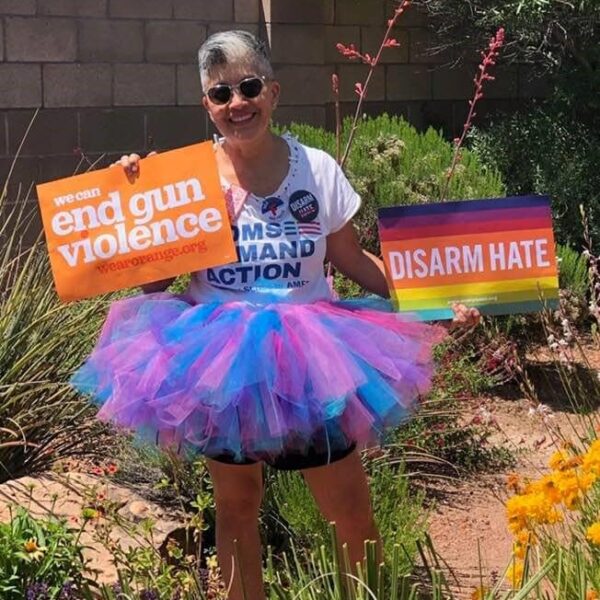Domestic violence and gun violence are inextricably linked in the United States. In summer 2024, the Supreme Court upheld the federal law that keeps abusers under domestic violence restraining orders (DVROs) from purchasing or possessing firearms. This law, and other state and federal laws that prohibit abusers subject to restraining orders or convicted of domestic violence-related crimes, are meant to protect survivors of domestic violence by ensuring that their abusers do not continue to have easy access to guns.
These laws are life-saving. Access to a gun makes it five times more likely that a woman will die at the hands of her abuser. But in many states, there are potentially lethal gaps in how well these laws are implemented.
Tennessee is one of several states that allows an abuser subject to an order of protection to give their firearm(s) to a third party, like a friend or relative, while they are prohibited from possessing the gun themselves. However, under state law, the person holding the guns doesn’t have to be identified to the court. “In such cases, someone could say they gave up their guns but still have access to them,” according to reporting from WPLN and ProPublica. There is currently no statewide process in place to ensure that abusers actually comply with the law and turn over their guns.
“Supposedly handing over the firearms to a third party without documentation and follow-up is no protection at all.”
—Byron A. Kamp, a Moms Demand Action volunteer working on the Tennessee local-level firearm dispossession campaign.
In the absence of state-level action in Tennessee to address this gap, one county revised its firearm dispossession form to try to ensure that dangerous individuals give up their guns. In Scott County, the third-party person who is holding the guns for the prohibited individual must:
- Be named on the form
- List their address on the form
- Sign the form to verify that they have the gun(s) in their possession.
The prohibited individual must then file this form with the court to demonstrate that they are in compliance.
Although it is “difficult to measure Scott County’s success because the numbers are so small,” data shows that domestic violence incidents have dropped by more than half between 2009 and recent years. Now, Moms Demand Action volunteers in Tennessee are looking to build on Scott County’s progress by advocating for more counties in the state to make similar changes to their firearm dispossession forms.
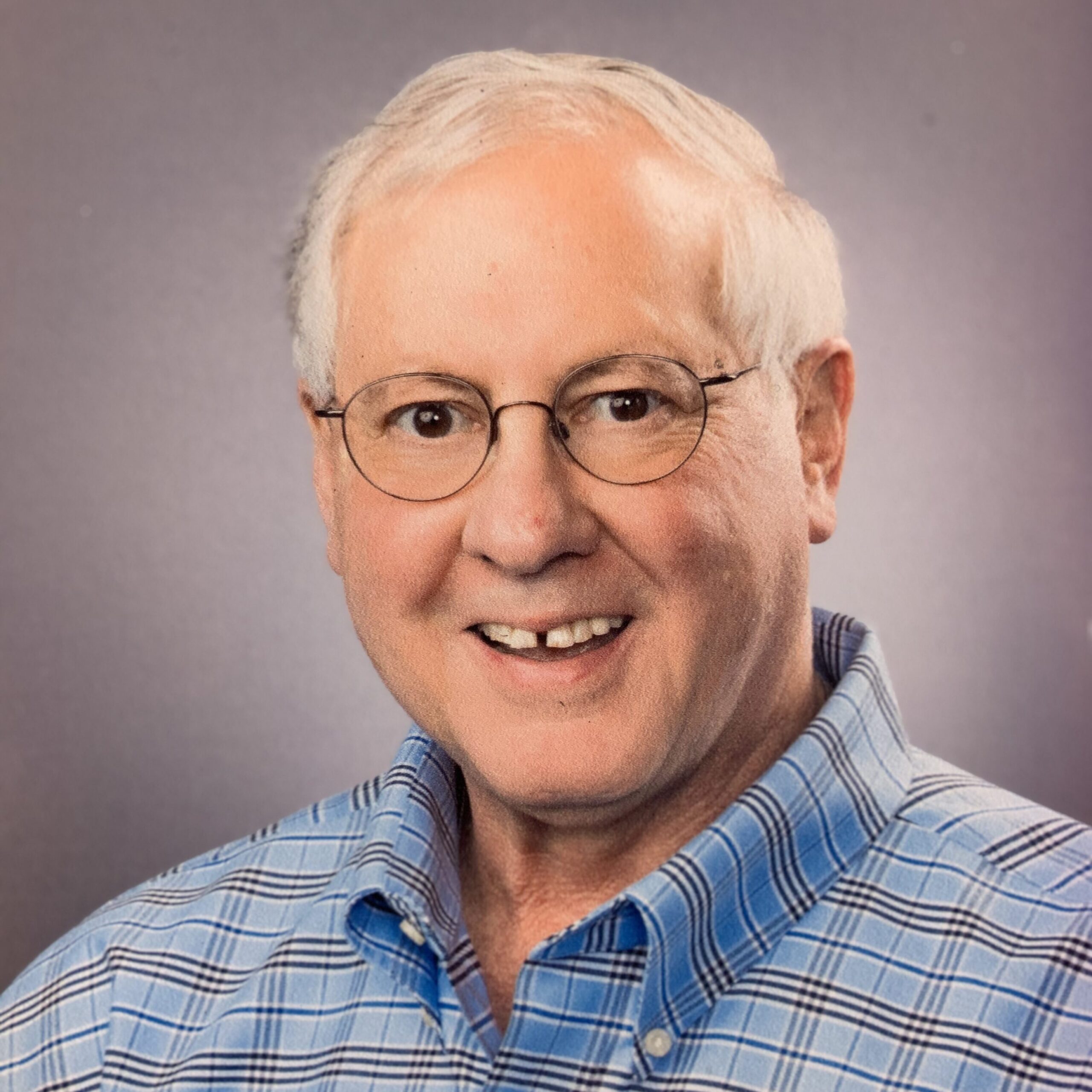
“A person who needs an order of protection also needs to feel safe from potential harm,” said Byron A. Kamp, one of the Moms Demand Action volunteers working on the local-level dispossession campaign in Tennessee. “Supposedly handing over the firearms to a third party without documentation and follow-up is no protection at all.”
That’s why Kamp and others on the small but mighty team of volunteers are working to accomplish three goals:
- To help Tennessee Moms Demand Action volunteers learn more about domestic violence orders of protection and how domestic violence court proceedings work;
- To work with partners, like Nashville’s Office of Family Safety, to encourage the Domestic Violence State Coordinating Council to update the third-party dispossession form at the state level; and
- To meet with judges in various cities and counties across Tennessee to discuss updating the third-party dispossession form at a local level.

For Linda McFadyen-Ketchum, the local group leader for Middle Tennessee Moms Demand Action, the education component of the campaign is key. “In states with high rates of domestic violence involving a firearm, it’s important that ‘ordinary people’ know about the tools available to victims and survivors,” McFadyen-Ketchum said. “Observing court proceedings in domestic violence cases is one way to get educated.”
Cathy Barnett, another member of the Tennessee Moms Demand Action dispossession work, said the team includes members “from all over the state to get a better idea of how different courts are handling gun dispossession forms.” Notably, she said, the team has “found no real cohesiveness” in how domestic violence dispossession is enforced.
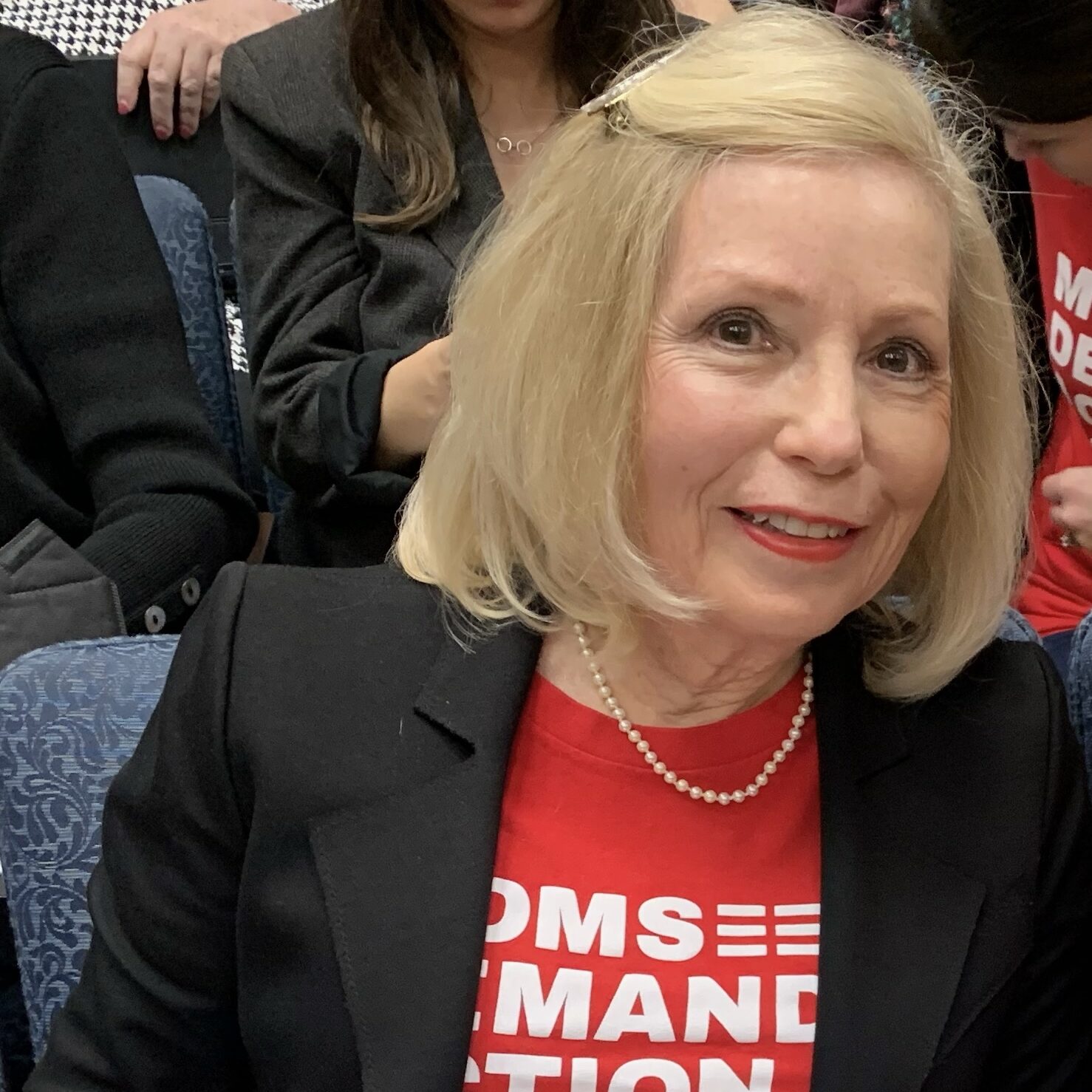
“In talking to the local judges, we have found that sometimes, they are as frustrated as we are in regards to gun dispossession forms—and they would certainly welcome a more accountable form, which would make their job a little easier,” Barnett said. “Stronger firearm relinquishment policies and implementation can literally save lives and reduce future domestic homicides.”
The team’s ultimate goal is to help close the third-party loophole on dispossession forms at the state level. For them, local organizing is not just a stepping stone—it’s the key way to get there. “As in local politics, local advocacy is where you can have the most impact,” McFadyen-Ketchum said. “Especially in small towns and rural counties, the bureaucracy is not complicated and sometimes a judge, like the Scott County judge, will take it upon herself to fix the problem.”
The Moms Demand Action volunteers in Tennessee have seen firsthand that local governments are both a place to run proactive campaigns and to act as a check on a gun-lobby captured state government. In 2024, Tennessee lawmakers passed a bill to arm teachers in schools. In response, volunteers organized across the state to ensure that school boards opted out and did not endanger students by allowing teachers to bring guns to schools.
“As in local politics, local advocacy is where you can have the most impact. Especially in small towns and rural counties, the bureaucracy is not complicated and sometimes a judge, like the Scott County judge, will take it upon herself to fix a problem.”
—Linda McFadyen-Ketchum, local group leader for Middle Tennessee Moms Demand Action.
Organizing locally allows Tennessee Moms Demand Action volunteers to take concrete steps for gun safety without running into the same gun lobby opposition they have encountered in the statehouse for years. Even a common-sense bill filed by Republican lawmakers to fix the domestic violence relinquishment form statewide has been delayed until at least 2026. The governor and lawmakers in Nashville have shown, year after year, that they are not interested in taking action to protect Tennesseans from gun violence. Now, volunteers are building a groundswell for change by working in their local communities.
“I joined because I felt that I had to do something to mitigate the gun violence in our country. I continue to be a volunteer because there is so much more work to be done.”
—Byron A. Kemp, a Tennessee Moms Demand Action volunteer.
And that push for change isn’t just happening in Tennessee. Moms Demand Action volunteers across the country are championing gun safety one conversation and one community at a time.
No matter where you are, you can do the same. If you want to get involved in local-level gun violence prevention work, here are five ways you can get involved:
- Find local offices or campaigns that you can support candidates for—or run for office yourself!
- Join your local chapter of Moms Demand Action to get involved in gun violence prevention work in your community.
- Work with your local school district to encourage it to pass a secure storage resolution.
- Educate your friends and family about secure gun storage (not sure how to do that? Here are some tips!) or volunteer with Be SMART to spread the word in your community.
- Develop intentional relationships with organizations that work to interrupt violence and support disproportionately impacted communities—then, when invited, follow their lead to support their work.

